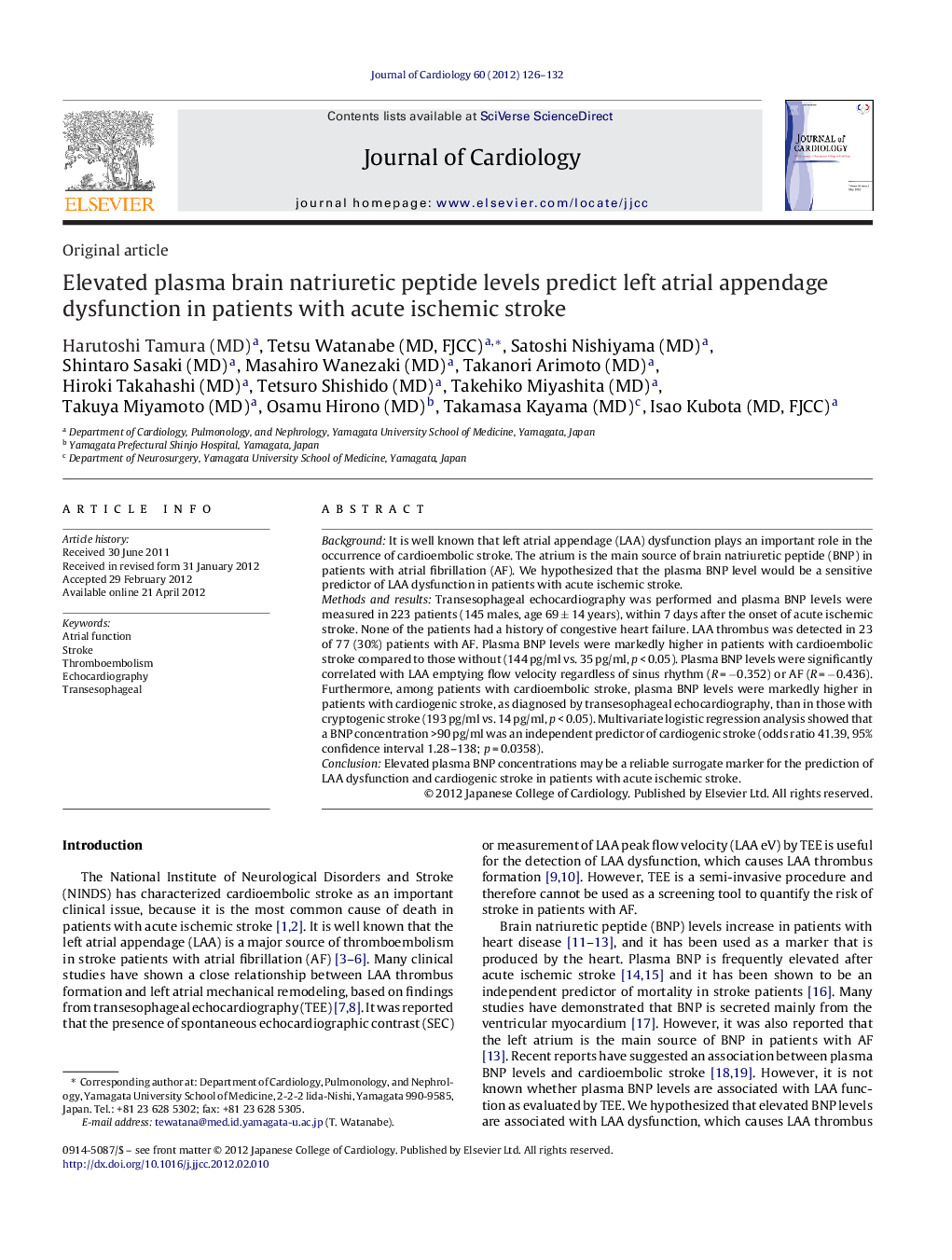| Article ID | Journal | Published Year | Pages | File Type |
|---|---|---|---|---|
| 2963300 | Journal of Cardiology | 2012 | 7 Pages |
SummaryBackgroundIt is well known that left atrial appendage (LAA) dysfunction plays an important role in the occurrence of cardioembolic stroke. The atrium is the main source of brain natriuretic peptide (BNP) in patients with atrial fibrillation (AF). We hypothesized that the plasma BNP level would be a sensitive predictor of LAA dysfunction in patients with acute ischemic stroke.Methods and resultsTransesophageal echocardiography was performed and plasma BNP levels were measured in 223 patients (145 males, age 69 ± 14 years), within 7 days after the onset of acute ischemic stroke. None of the patients had a history of congestive heart failure. LAA thrombus was detected in 23 of 77 (30%) patients with AF. Plasma BNP levels were markedly higher in patients with cardioembolic stroke compared to those without (144 pg/ml vs. 35 pg/ml, p < 0.05). Plasma BNP levels were significantly correlated with LAA emptying flow velocity regardless of sinus rhythm (R = −0.352) or AF (R = −0.436). Furthermore, among patients with cardioembolic stroke, plasma BNP levels were markedly higher in patients with cardiogenic stroke, as diagnosed by transesophageal echocardiography, than in those with cryptogenic stroke (193 pg/ml vs. 14 pg/ml, p < 0.05). Multivariate logistic regression analysis showed that a BNP concentration >90 pg/ml was an independent predictor of cardiogenic stroke (odds ratio 41.39, 95% confidence interval 1.28–138; p = 0.0358).ConclusionElevated plasma BNP concentrations may be a reliable surrogate marker for the prediction of LAA dysfunction and cardiogenic stroke in patients with acute ischemic stroke.
